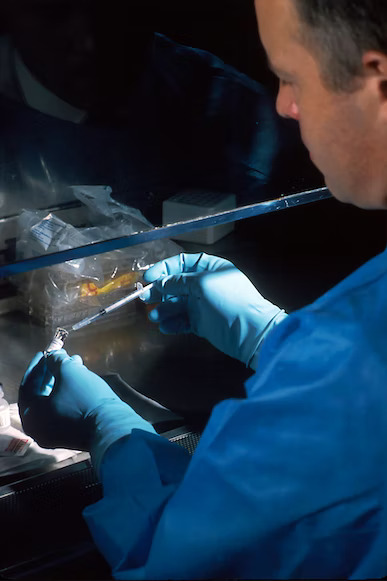Preventive Healthcare
Blood Urea Nitrogen (BUN) Test: High vs. Low Levels, Normal Range
11927 Views
0

What is a blood urea nitrogen test?
The blood urea nitrogen (BUN) test is an important diagnostic method that provides insights into your kidney function and overall health. Urea nitrogen is a byproduct of protein breakdown from the food you consume. It is produced in the liver, and transported in the bloodstream to the kidneys, where it's filtered out and eventually eliminated from your body in the form of urine. The BUN test helps evaluate how efficiently your kidneys are filtering waste products from your body. During the test, the BUN level is measured in milligrams of nitrogen per deciliter of blood. The blood urea nitrogen test is often part of routine health check-ups and can aid in the early detection of kidney issues such as glomerulonephritis, pyelonephritis and others.
Why is a blood urea nitrogen test done?
The blood urea nitrogen test is instrumental in diagnosing, monitoring, and managing a spectrum of kidney-related and systemic health conditions. Doctors recommend a blood urea nitrogen test based on various symptoms or risk factors associated with abnormal kidney function. This can include frequent urination, swelling in your hands or feet, unexplained fatigue, high blood pressure, diabetes, or suspected kidney disease. It is also used in the case of patients with low BUN level symptoms such as weakness, dizziness, and muscle cramps. It's also valuable in conditions such as heart failure, liver disease, or gastrointestinal bleeding, as it helps evaluate the efficiency of kidneys. The BUN test is used for identifying acute kidney injury, chronic kidney disease, and various urinary tract issues.
What is a normal blood urea nitrogen level?
The normal range of blood urea typically falls between 7 to 20 milligrams per deciliter (mg/dL). Infants usually have a lower range, around 5 to 18 mg/dL, while older adults may have a slightly higher range. Note that the age-wise blood urea normal range can vary slightly based on the specific reference values used by different laboratories.
What level of urea indicates kidney failure?
Higher than normal urea values alone don't indicate kidney failure. However, a BUN test level over 20 mg/dL, along with other abnormal kidney function test results, may signal potential kidney problems.
What does high blood urea nitrogen mean?
A high blood urea nitrogen level typically suggests issues with your kidney function, dehydration, heart failure or excessive protein intake. It can also signify a catabolic state from infections. If your question is, what is a dangerous high bun level, then you should know that it varies from person to person but is generally over 40-50 mg/dL. It indicates severe kidney problems but evaluation in conjunction with other tests and symptoms is important for an accurate diagnosis.
What does low blood urea nitrogen mean?
A low blood urea nitrogen level may signal liver disease, malnutrition, or overhydration. It is typically lower than the urea's normal value, often considered less than 7 mg/dL.
What happens before a blood urea nitrogen test?
Before a blood urea nitrogen test, you generally don't need to make any special preparations. However, it's advisable to inform your healthcare provider about any medications or supplements you're taking, as certain drugs can affect BUN levels. They may recommend fasting for a few hours if the test is part of a comprehensive metabolic panel. On the day of the BUN test, wear clothing so that you can move your sleeves up easily and make sure to stay hydrated.
What happens during a blood urea nitrogen test?
During a blood urea nitrogen test, a phlebotomist will draw blood from a vein in your arm. They'll clean the site with an antiseptic, tie a band around your upper arm to increase blood flow, and insert a needle to collect a blood sample. You might feel a quick sting or slight discomfort. Once they've taken enough blood, the needle is removed, and they'll apply pressure to the site, possibly using a bandage. The process typically takes a few minutes. The sample is then sent to a lab for analysis, and you'll receive results after the test is completed.
What happens after a blood urea nitrogen test?
After a blood urea nitrogen test, you can resume your normal activities immediately. There is usually no need for any special post-test precautions. Your doctor will receive the test results and interpret them based on your medical history and symptoms. They will discuss the findings with you, addressing any concerns or potential health issues identified through the BUN test. Depending on the results, your doctor may recommend further tests or treatment if necessary. It's essential to follow up with your doctor to understand and manage any underlying conditions that may have been detected through the BUN test.
How Do You Fix High BUN Levels?
To address high blood urea nitrogen levels, you should consult a nephrologist to determine the underlying cause and develop an appropriate treatment plan. Here are some general steps on how to reduce blood urea:
- Dietary adjustments: Monitor your protein intake, as a high-protein diet can contribute to elevated BUN levels. Reducing protein intake, especially animal proteins, may help.
- Hydration: Stay adequately hydrated. Dehydration can lead to higher BUN levels. Ensure you drink enough water each day to support kidney function.
- Medication: In some cases, your doctor may prescribe medications to manage kidney function or reduce BUN levels.
- Lifestyle changes: Avoid excessive strenuous exercise, as it can temporarily increase BUN levels. Maintain a balanced and healthy lifestyle.
- Consult a Dietitian: If dietary adjustments are necessary, seek guidance from a registered dietitian who can help you create a balanced meal plan that aligns with your doctor's recommendations.
What foods should I avoid if my blood urea nitrogen levels are high?
If your blood urea nitrogen levels are high, consider moderating high-protein foods like red meat, poultry, and dairy products, as they can elevate BUN levels. Additionally, limit processed and canned foods high in sodium, which can affect kidney function. Reduce salt intake and avoid excessive protein consumption. Opt for a well-balanced diet with guidance from a nephrologist or a registered dietitian.
What medications are used to treat abnormal blood urea nitrogen levels?
Medications to treat abnormal blood urea nitrogen levels depend on the underlying cause and may include diuretics, ACE inhibitors, and others.
Conclusion
To sum up, a blood urea nitrogen test measures the levels of urea in your blood which helps in the early detection of a variety of kidney problems. It is important to recognise the symptoms that are linked to high and low BUN levels and consult a nephrologist for proactive management and maintaining a normal range of blood urea. If you are looking for affordable and precise BUN testing or a comprehensive metabolic panel test, Metropolis Labs might be the right place for you! With Metropolis Labs you can avail the test from home facility and can get your reports online.
 Home Visit
Home Visit Upload
Upload














1701259759.webp)









 WhatsApp
WhatsApp